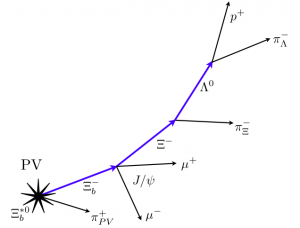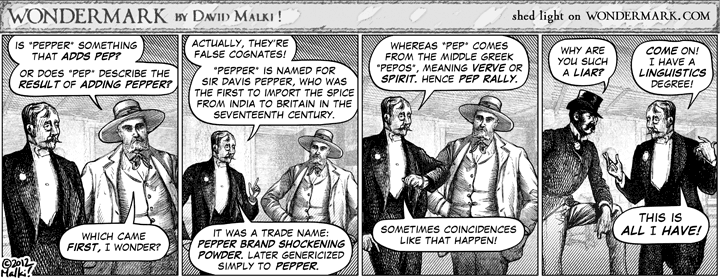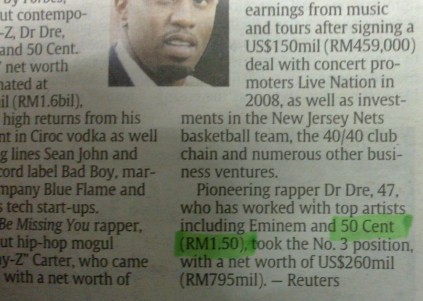Yesterday's Morning Edition took up the question of how "Bribery Accusations Hurt Wal-Mart's Stock Price". The segment takes the form of a conversation between NPR's Chris Arnold and Charles Elson, director of the Center for Corporate Governance at the University of Delaware, in which a metaphorically sticky wicket plays an important role. Like many Americans who use that phrase, Chris Arnold re-interprets the metaphor in a way that makes sense to those who are innocent of cricket:
Audio clip: Adobe Flash Player (version 9 or above) is required to play this audio clip. Download the latest version here. You also need to have JavaScript enabled in your browser.
ARNOLD: It's, of course, too early to say what will happen at Wal-Mart. There many of the payments appear to have been aimed at getting building permits more quickly. And actually there is a grey area there in U.S. law. Companies are permitted to make what are called facilitating payments, quote-unquote, to avoid getting something like a building permit stuck on a minor bureaucrat's desk. But Charles Elson says that can be a sticky wicket to try to go through.
ELSON: When you cross the line from the payment which is acceptable, to a bribe, that's where you have your problems.
ARNOLD: What is the difference, though, between a facilitating payment and a bribe? I mean a bribe is a payment that uh facilitates something, right?
ELSON: Well, that's- that's why ((as I said)) – that's why it's such a sticky wicket.
ARNOLD: Legal experts say lately the Justice Department has been making that wicket even stickier. That is, it's been showing less tolerance for companies to make under the table payments of any kind.
Read the rest of this entry »



